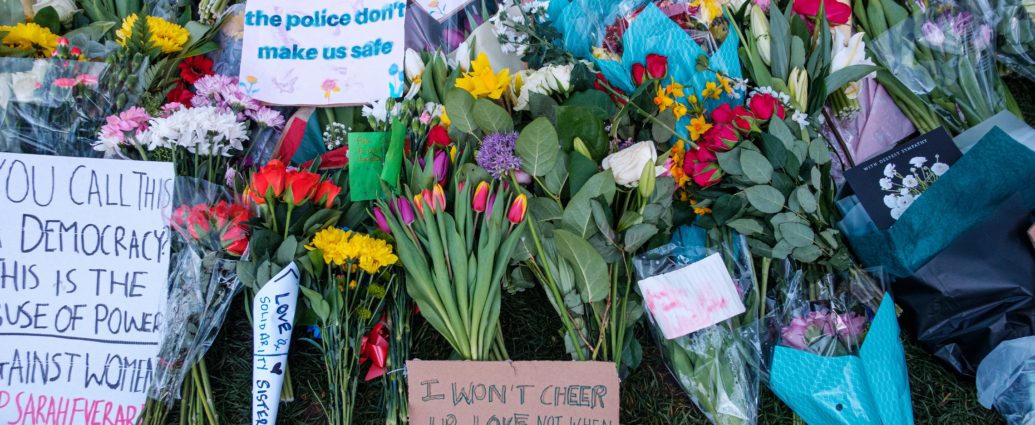Beth Williams
Despite recent calls from figures across the political spectrum to recognise misogyny as a hate crime, the Prime Minister is opposing the proposed measure. Johnson believes recruiting and promoting more female officers would be a better solution to the scrutiny the police are facing over its handling of crimes against women.
Boris Johnson’s Stance
When asked his thoughts on the proposed amendment, Johnson said “I think that what we should do is prosecute people for crimes that we have on the statute book. I think, to be perfectly frank, if you simply widen the scope of what you ask the police to do you’ll just increase the problem”.
“I’m disappointed and hopefully the government will start to listen.”
However, it’s predicted that Conservative peers are set to contradict the opinion of the PM. Former victims’ commissioner Helen Newlove is fronting the campaign in the House of Lords.
Reacting to Boris Johnson’s stance, Newlove referenced the recent murder of Sarah Everard. She said, “If the rhetoric is we’re going to have an inquiry for Sarah Everard, for the prime minister to dismiss [making misogyny a hate crime] is not really to have understood what happened to her. I’m disappointed and hopefully the government will start to listen.”
Recognising misogyny as a hate crime would allow a judge to impose a harsher sentence if the offence falls into that category.
Dominic Rabb’s Confusion
“misogyny is absolutely wrong, whether it’s a man against a woman or a woman against a man.”
Other politicians in Johnson’s cabinet have been criticized over their lack of knowledge on the issue.
In an interview with the BBC, justice minister Dominic Rabb displayed a lack of understanding over the definition of misogyny. He said that, “misogyny is absolutely wrong, whether it’s a man against a woman or a woman against a man”.
Misogyny describes hatred targeted specifically at women. Despite disagreeing with what he wrongly considered misogyny, Rabb agrees with Boris Johnson, opposing classing it as a hate crime. His apparent support towards women’s safety contradicts comments he made on The Andrew Marr Show in 2011. Where he called feminists “obnoxious bigots” that cause men to have a “raw deal”.
Sarah Everard
The murder of Sarah Everard at the hands of a police officer six months ago has ignited a conversation surrounding society’s attitudes towards women’s safety.
The government have been condemned over their lack of action in combating misogyny as many more, including Sabina Nessa, have since been victims of male violence. During Wayne Couzens’ trial for her murder, it was revealed he had abducted Sarah Everard through falsely arresting her. After Couzens’ was sentenced to a whole-life order, the police proceeded to advise women on how to stay safe in the presence of a police officer; rather than taking accountability over their staff. Some “laughable” examples include flagging down a bus or calling 999 if women were to feel unsafe in that scenario.
Others have raised questions surrounding how Couzens, who was nicknamed “the rapist” by co-workers, was allowed to work in a position of trust despite displaying dangerous behaviour prior to murdering Sarah Everard.
Boris Johnson’s History of Misogynystic and Sexist Behaviour
The Prime Minister’s stance has not surprised many, considering his well-publicised history of derogatory comments towards women.
As a journalist for the Telegraph in 1996, Johnson wrote an article surrounding the “hot totty” present at the Labour Party conference. He has also written articles criticising “the modern Briton [for] his reluctance or inability to take control of his woman” and encouraging his successor at the Spectator to grope their boss.
During his time as Prime Minister, Johnson was condemned by then-Speaker John Bercow in 2018 for referring to MP Emily Thornberry by her husband’s title, rather than her own. The Prime Minister has refused to apologise for many of his past actions and behaviour earlier this year. Despite his stance on recognizing misogyny as a hate crime, Johnson has vowed to tackle casual sexism.
Misogyny Within the Government
With only 34% of current members of parliament being women, male MP’s have the majority of influence over the passing and denying of motions that impact the female population.
A 2019 study found that the UK’s female MPs were recipients of 5,000 abusive tweets collectively within an 11 day period, the majority of which being of misogynistic or sexist nature. The study also found that 1/3 of them considered resigning from their position due to the abuse they face.
The government’s lack of action surrounding attacks targeted at their own female MP’s allows a cycle of misogyny to continue. Caroline Dinenage, MP for Gosport, believes misogyny deters some women from pursuing a career in politics. This almost certainly contributes to the continuation of a male-majority in parliament and the continuation of a government that does not understand the fears of women.
Featured image courtesy of Ehimetalor Akhere Unuabona on Unsplash. No changes or alterations were made to this image. Image license can be found here.

